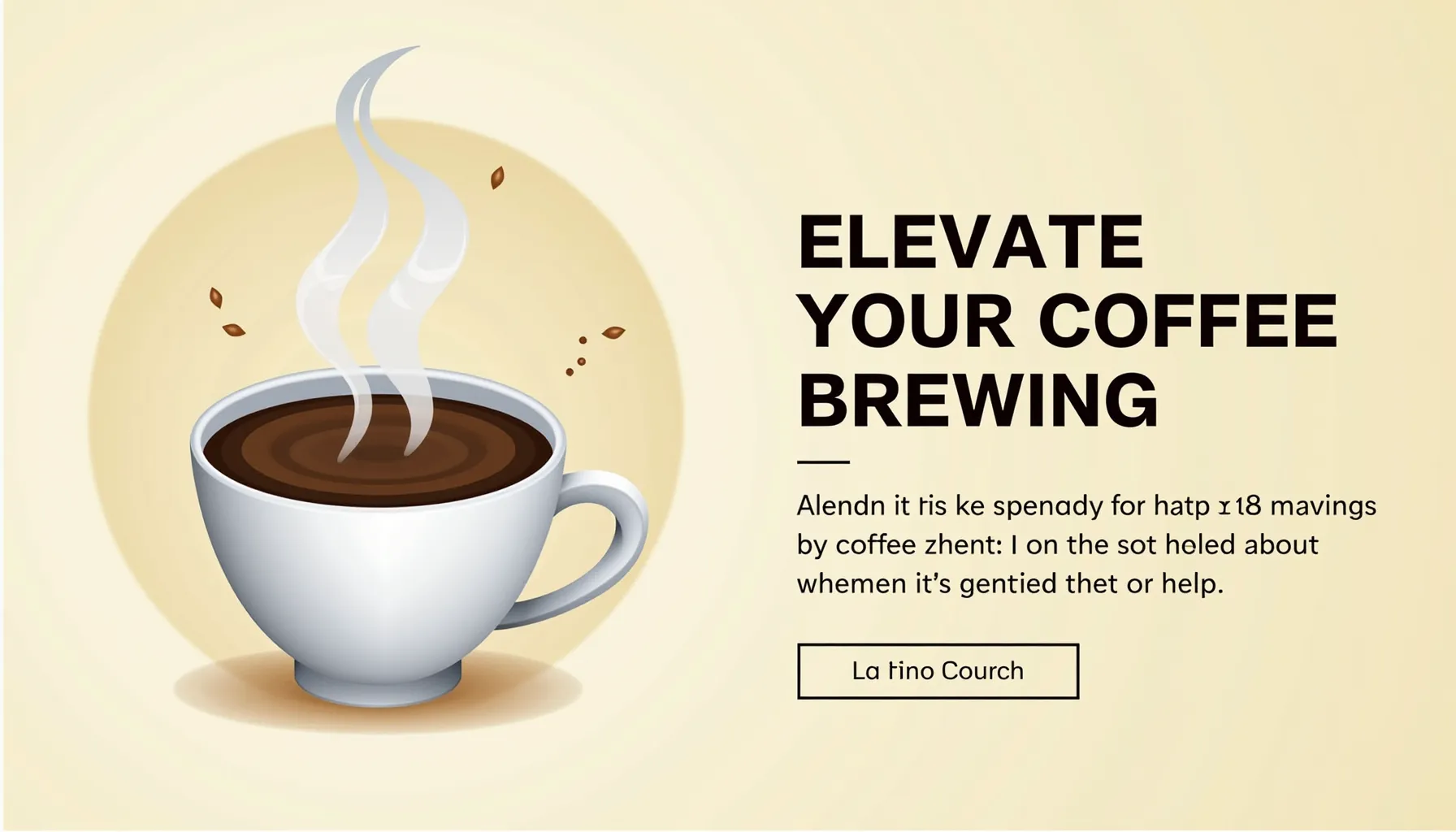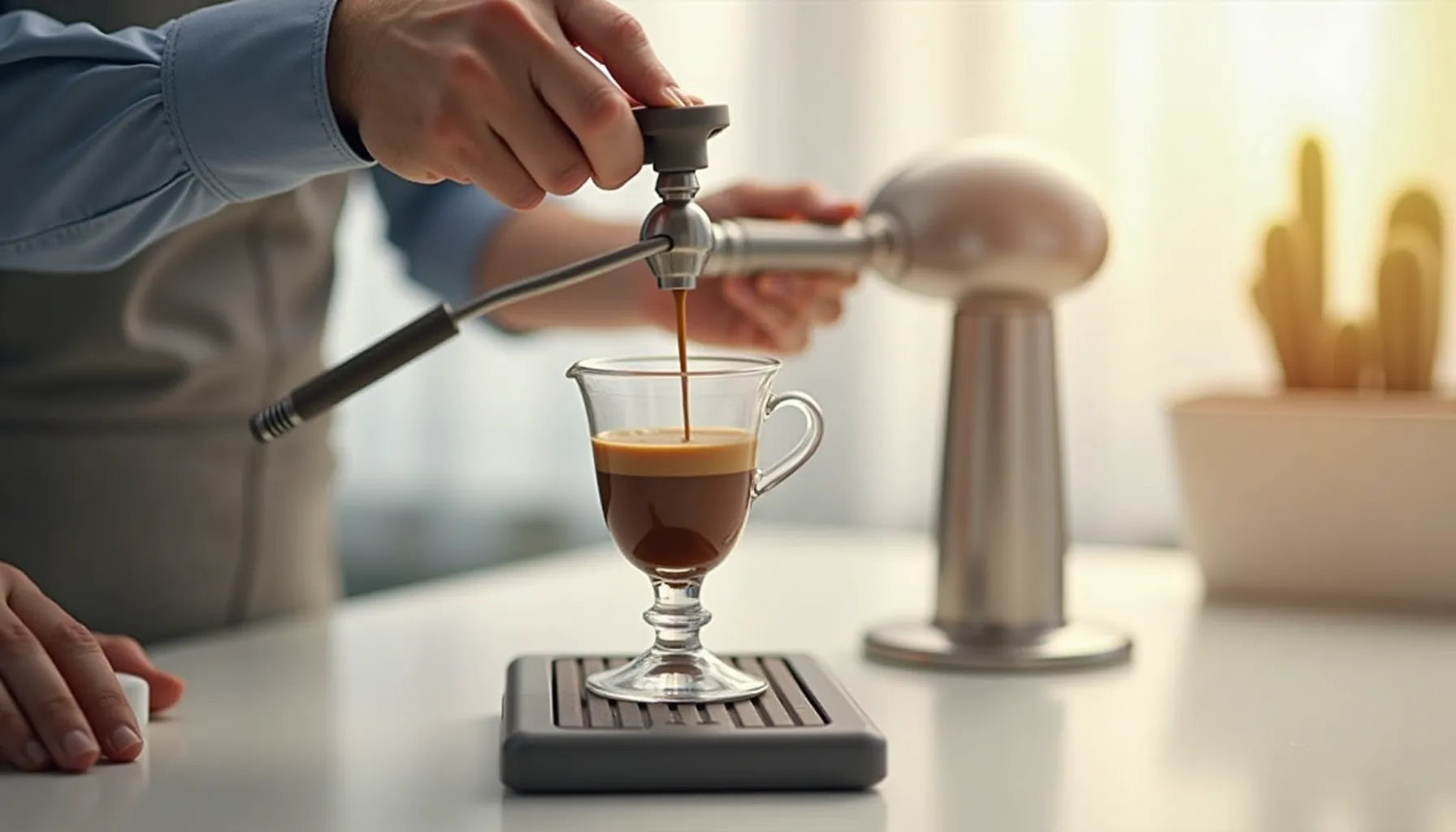As the world embraces the new year, the coffee industry continues to evolve, offering a blend of traditional practices and innovative trends. This comprehensive analysis delves into the multifaceted realm of coffee, spanning from its production and market dynamics to emerging trends and consumer preferences.
Here’s a closer look at the global coffee landscape as we step into 2024.
Coffee Market Dynamics and Segmentation
The coffee industry, a vibrant and ever-changing sector, is influenced by a myriad of factors. The year 2024 sees the continuation of this evolution, with significant developments and strategic partnerships shaping the market. Notable instances include Reliance Brands Ltd's collaboration with Pret a Manger, aiming to expand the organic coffee chain in India, and FNC's launch of a women-produced coffee line, introducing a novel aspect of brand differentiation (Source).
Market Segmentation
The global coffee market is meticulously segmented to cater to diverse consumer needs and preferences. This segmentation spans across product types such as whole-bean, ground coffee, instant coffee, and innovative forms like coffee pods and capsules. Distribution channels are bifurcated into on-trade and off-trade, with the latter encompassing supermarkets/hypermarkets, convenience stores, specialist retailers, and other avenues. Geographical segmentation covers major regions including North America, Europe, Asia-Pacific, South America, and the Middle East & Africa, each with its unique coffee consumption patterns and preferences (Source).

Photo by Kampus Production from Pexels
Evolving Coffee Trends
As we venture into 2024, the coffee industry is not just about the beverage; it's about the experience, sustainability, and innovation. Let's explore the pivotal trends reshaping the coffee world.
Sustainability: The Green Shift
Sustainability is more than a buzzword in today's coffee industry. With initiatives like the European Green Deal steering the market towards climate neutrality by 2050, the industry is witnessing a surge in environmentally friendly products. These products not only cater to the rising consumer demand for sustainability but also align with global efforts to combat biodiversity loss and emissions (Source).
The Rise of Specialty Coffees
Specialty coffees are making a significant mark, with a surge in diverse blends catering to specific tastes. From single-origin beans to brews infused with locally sourced ingredients, these coffees offer a journey of discovery and an unmatched sensory experience. This trend signifies the industry's move towards more personalized, quality-driven offerings (Source).
The AI Revolution in Coffee
Artificial Intelligence (AI) is transforming the coffee sector, from cultivation and production to brewing. Precision farming, AI-driven smart coffee machines, and data analytics are at the forefront, offering a more personalized and efficient coffee experience. This integration of AI signifies a shift towards a more technologically advanced, consumer-centric coffee ecosystem.
Predicting Trends in the Coffee Industry in 2024:
The Global Influence of Social Media on Coffee Culture
Social media platforms, particularly Instagram, have transformed coffee into a lifestyle, promoting new trends like whipped coffee and rainbow lattes. The influence of these platforms is expected to grow, further shaping the coffee culture globally. This digital influence extends beyond consumption patterns, fostering a global community of coffee enthusiasts and trendsetters.
Coffee Production and Consumption: A Global Perspective
Global coffee production, a testament to the beverage's widespread appeal, highlights the dominant role of countries like Brazil, Vietnam, and Colombia. These nations, together, contribute significantly to the world's coffee output, with Brazil leading at approximately 35% of global production.
The coffee landscape is enriched by the diversity of bean varieties, each offering unique flavors and characteristics. Arabica and Robusta remain the most prevalent, accounting for 60% and 40% of global production, respectively (Source).
In terms of consumption, the global coffee landscape is a tapestry of cultural diversity. Approximately 2.25 billion cups of coffee are consumed daily worldwide, reflecting the beverage's integral role in various societies. Coffee consumption demographics reveal intriguing patterns, with young adults aged 18-34 being the most active consumers. This demographic accounts for roughly 40% of global coffee consumption, underscoring the beverage's appeal across generations (Source).
The US Coffee Market: A Closer Look
The US stands as the world's largest importer of coffee, with an average annual spend of $270 per person on coffee. The trend of out-of-home coffee consumption is on the rise, with an expected 21% of coffee sold in out-of-home venues by 2025.
American coffee culture is characterized by high daily consumption rates, with 62% of Americans drinking coffee every day and an average of three cups per person per day (Source).
Exploring the Nuances of Global Coffee Culture and Innovations
The coffee industry in 2024 is not just thriving; it’s pulsating with energy, driven by cultural nuances, technological advancements, and a deep-seated love for the beverage. As we delve deeper into this aromatic world, we uncover the layers that make coffee much more than a mere drink—it's a global phenomenon.
The Home Brewing Revolution
In recent years, there has been a noticeable shift towards home brewing. The pandemic, changing lifestyles, and a growing appreciation for artisanal coffee have led to this trend. About 70% of consumers now prefer to prepare their coffee at home, a practice that not only offers comfort and convenience but also allows for a deeper connection with the brewing process.
This trend has been further fueled by advancements in home brewing equipment, ranging from high-tech espresso machines to simple, yet elegant, pour-over setups. Consumers are not just brewing coffee; they're crafting experiences, one cup at a time (Source).
Coffee at Work: The Productivity Elixir
Coffee at the workplace is not just a beverage; it's a ritual. About 68% of people report drinking coffee while working, using it as a tool to enhance focus and productivity. This trend speaks volumes about coffee's role in the modern work environment, transcending its traditional boundaries and becoming a staple of professional life. Offices are now paying closer attention to providing quality coffee, recognizing its impact on employee satisfaction and productivity (Source).
Ethical Coffee: A Rising Demand
Today's consumers are not just interested in the taste of their coffee; they are increasingly concerned about its origins and the ethics behind its production. A significant 53% of consumers express a preference for ethical coffee, seeking assurance that their beverage is sourced responsibly, with fair compensation for coffee farmers. This trend is driving changes across the industry, pushing companies to adopt more transparent and fair trade practices (Source).
The Coffee Shop Experience: Evolving Consumer Preferences
Coffee shops have long been more than places to get a caffeine fix; they are social hubs, workspaces, and cultural landmarks. As consumer preferences evolve, these establishments are adapting, offering more than just coffee. The rise of themed coffee shops, offering unique experiences or catering to specific interests, is a testament to this evolution. Coffee shops are no longer just about the product; they're about the experience, the ambiance, and the community.
The Role of Technology in Personalizing the Coffee Experience
Technology is revolutionizing the way we interact with our coffee. From AI-driven coffee machines that remember your favorite brew to apps that allow you to order and pay before you even step into the cafe, the coffee industry is at the forefront of the digital revolution. This technological integration makes the coffee experience more convenient, personalized, and in tune with the fast-paced lifestyle of modern consumers.
The Phenomenon of Coffee Subscriptions
Coffee subscriptions have emerged as a popular trend, offering convenience and variety to consumers. These services not only provide a regular supply of fresh coffee but also introduce consumers to a wide array of blends and flavors they might not otherwise encounter. It's a journey of discovery, delivered right to your doorstep.
Specialty Coffee: A Journey of Flavor and Craftsmanship
Specialty coffee continues to captivate connoisseurs and casual drinkers alike. This segment is not just about the quality of the beans; it's about the story, the craft, and the unique flavor profiles that each batch brings. Small roasteries and independent coffee shops are at the heart of this movement, championing single-origin beans, innovative brewing methods, and a deep respect for the coffee-making process.
The Art of Coffee Pairing
Coffee pairing has become an art form, akin to wine tasting. Enthusiasts are now exploring how different coffees complement various foods, unlocking new taste experiences. From the classic coffee and pastry pairing to more adventurous combinations, this trend is a nod to the sophistication and versatility of coffee as a beverage.
Coffee Tourism: A Global Adventure
Coffee tourism is on the rise, with enthusiasts traveling to remote plantations to experience the coffee production process firsthand. These journeys offer a deep dive into the local culture, traditions, and the intricate process of coffee making, from bean to cup. It's an immersive experience that connects coffee lovers with the origins of their beloved beverage.
Coffee and Health: A Focus on Wellness
As health consciousness grows, the relationship between coffee and wellness is coming into the spotlight. Functional coffees, infused with ingredients like adaptogens, collagen, and CBD oil, are gaining popularity. These beverages offer more than just a caffeine kick; they promise a holistic health experience. The coffee industry is responding to this trend by crafting blends that not only stimulate but also nourish.
Coffee in the Age of Social Media: A Cultural Icon
Social media continues to shape the coffee culture, turning every cup into a statement. Platforms like Instagram have transformed coffee into a visual and experiential phenomenon, with millions of posts showcasing beautifully crafted lattes, cozy cafe corners, and the personal stories of baristas and coffee lovers. This digital landscape is a testament to coffee's place in modern culture, transcending geographical boundaries and connecting a global community of coffee aficionados.
The Environmental Impact: Towards a Sustainable Future
The coffee industry is increasingly focusing on sustainability, recognizing its responsibility towards the planet and future generations. Efforts range from implementing eco-friendly farming practices to reducing waste in coffee shops. The trend towards reusable cups, zero-waste establishments, and support for sustainable coffee farming practices underscores the industry's commitment to environmental stewardship.
As we journey through the intricate layers of the coffee industry, it's evident that coffee is more than a beverage—it's a cultural phenomenon, a symbol of innovation, and a testament to the shared human experience. The industry's embrace of technology, ethical practices, and sustainable initiatives, coupled with its celebration of tradition and craftsmanship, paints a vibrant picture of a sector that's continually brewing new trends and experiences. As we look towards the future, one thing is clear: the world's love affair with coffee is set to deepen, offering new flavors, experiences, and connections, one cup at a time.
Unveiling the Future of Coffee: Innovations and Cultural Evolution
The coffee industry, a dynamic and ever-evolving sector, continues to shape our lifestyles and preferences. As we delve further into the future of coffee, we encounter groundbreaking innovations and a deep-rooted cultural evolution that redefine our connection with this beloved beverage. In this final segment, we explore the avant-garde of coffee trends and the cultural shifts that are setting the stage for the future of coffee.
The Digitalization of Coffee Culture
In the digital age, the coffee industry is not left behind. The integration of technology in coffee brewing and distribution is revolutionizing the consumer experience. Mobile ordering and payment systems, loyalty apps, and even blockchain for traceability are becoming commonplace. These innovations offer unparalleled convenience and a personalized experience, aligning perfectly with the modern consumer's expectations.
The Emergence of Coffee NFTs
The intersection of coffee and the digital world doesn't stop at mobile apps. The rise of Non-Fungible Tokens (NFTs) is introducing a novel concept in the coffee industry. Imagine owning a unique digital asset representing a rare coffee blend or a memorable coffee experience. This trend is not just about investment; it's about creating a community of coffee lovers connected through technology and passion.
Coffee and Sustainability: A Green Revolution
As the world gravitates towards sustainability, the coffee industry is at the forefront of this green revolution. From biodegradable coffee pods to carbon-neutral coffee shops, every aspect of the industry is being reimagined with an eco-conscious mindset. This shift is not just about minimizing the environmental impact; it's about creating a sustainable culture around coffee consumption.
The Rise of Plant-Based Alternatives
The popularity of plant-based diets has ushered in a new era for coffee additives. Almond, soy, oat, and other plant-based milks are becoming a staple in coffee shops worldwide. These alternatives cater not just to dietary preferences but also to a growing awareness of environmental and ethical concerns associated with traditional dairy products.
Coffee Education and Appreciation
As coffee culture matures, there's a growing interest in coffee education. Consumers are keen to learn about the journey of their coffee, from the farm to their cup. Coffee tasting events, barista workshops, and coffee farm tours are becoming popular, turning coffee consumption into an informed, immersive experience.
The Role of AI in Coffee Education
Artificial Intelligence (AI) is making coffee education more accessible and personalized. AI-powered apps can now recommend coffee blends based on your taste preferences, guide you through the brewing process, or even educate you about the origins of your favorite beans. This technology is democratizing coffee expertise, making it accessible to anyone with a smartphone.
Conclusion
As we conclude our exploration of the global coffee trends in 2024, it's evident that the coffee industry is on the cusp of a transformative era. The convergence of technology, sustainability, and cultural evolution is brewing a future where coffee is not just a beverage but a symbol of innovation, environmental stewardship, and global connection.
As consumers, we're at the forefront of this revolution, witnessing the birth of new coffee experiences, ethical practices, and a deeper appreciation for this timeless beverage. The future of coffee is not just about savoring new flavors; it's about being part of a global movement that celebrates tradition, embraces innovation, and respects our planet.
Here's to a future where every cup of coffee tells a story of quality, sustainability, and passion.
Frequently Asked Questions
-
What are the latest trends in the coffee industry for 2024?
- The coffee industry in 2024 is characterized by sustainability, technological integration, specialty coffee experiences, and a growing focus on ethical and transparent sourcing.
-
How is technology changing the coffee industry?
- Technology is revolutionizing the coffee industry through AI-driven brewing and customization, digital platforms for ordering and loyalty programs, and blockchain for ensuring traceability and ethical sourcing.
-
What is the impact of sustainability on the coffee industry?
- Sustainability is leading to eco-friendly practices such as biodegradable packaging, carbon-neutral operations, and the use of plant-based milk alternatives, shaping a greener future for the industry.
-
How are consumer preferences evolving in the coffee industry?
- Consumers are increasingly seeking personalized, quality-driven coffee experiences, with a preference for specialty and ethically sourced coffees, and a growing interest in home brewing and coffee education.
-
What role does coffee play in modern culture?
- Coffee has evolved into a cultural icon, symbolizing social connection, productivity, and a passion for artisanal craftsmanship, and is a staple in various social, professional, and personal settings.
-
Are plant-based alternatives becoming mainstream in the coffee industry?
- Yes, plant-based milk alternatives like almond, soy, and oat milk are becoming mainstream, driven by dietary preferences and environmental consciousness.
-
What is coffee NFT, and how is it relevant?
- Coffee NFTs are digital assets representing unique coffee blends or experiences, offering a novel way for coffee enthusiasts to connect and invest in the coffee culture digitally.
-
How is coffee education influencing consumer behavior?
- Coffee education is empowering consumers to make informed choices, appreciate the craftsmanship behind their coffee, and engage more deeply with the coffee community.
-
What are the future prospects for home brewing?
- Home brewing is projected to grow, with advancements in brewing equipment and a growing appreciation for artisanal coffee, offering a personalized coffee experience at home.
-
How is the coffee shop experience evolving?
- The coffee shop experience is evolving to offer more than just coffee, focusing on unique themes, personalized services, technology integration, and community building.












